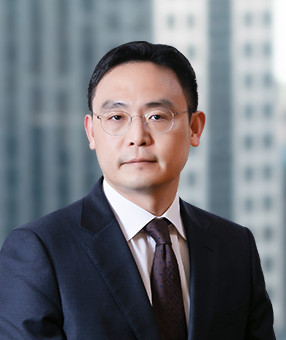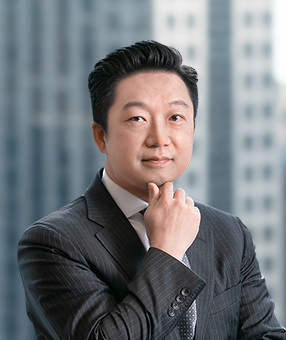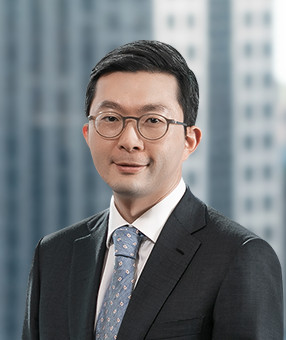On June 30, 2023, the Korea Fair Trade Commission (the “KFTC”) issued an administrative notice on the proposed Guidelines on the Criteria for Determination and Verification Procedures of Same Persons (the “Guidelines”), with a 20-day public comment period that ended on July 20, 2023.
The “same person” is a term that has been used since 1986, when the regulatory regime for “large business groups” was first introduced. While it is a key concept that determines the subject and scope of regulation, the system has been in operation without expressly defining the concept or its scope in the regulations. As a result, various issues have been raised in connection with the designation of the same person, including matters related to the succession of management control to the second generation, the emergence of corporate groups with various governance structures, and the expansion of management participation by institutional investors. In addition, the selection process has been criticized as unclear and arbitrary due to the lack of criteria and procedures for determining same persons.
Accordingly, the KFTC has pursued the enactment of the Guidelines in order to (i) enhance the predictability of the scope of persons subject to the Guidelines, (ii) enhance objectivity and transparency in designating the “same person,” and (iii) give legitimacy to the regulatory regime for large business groups. The key details are as follows:
|
1. |
Criteria for Determination of Same Persons |
The proposed Guidelines set forth five criteria for determining same persons: (i) the largest investor of the topmost company within the business group, (ii) the highest-ranking official of the business group; (iii) a person exerting dominant influence over the management of the business group, (iv) a person recognized as the representative of the business group internally or externally, and/or (v) a person determined as the same person of the business group in accordance with the same person succession policy.
-
Largest investor of the topmost company of the business group. If the largest investor is not a natural person but an affiliate company or an institutional investor, then a natural person who would be the largest investor after aggregating not only the direct interests in the topmost company but also the indirect interests held through the domestic and foreign affiliates would meet the criteria.
-
Highest-ranking official of the business group. The person holding the highest-ranking official position of the business group, such as the “Chairman,” “Representative Director of the topmost company of the business group,” “Chairman of the board of directors,” etc., meets the criteria. However, even if a person is in a position that is difficult to be recognized as the highest position, such as the position of “Vice Chairman,” if there is no higher position in the business group, he/she would meet the criteria.
-
Person who exercises dominant influence over the management of a business group. A person who continuously exercises dominant influence over major decision-making or business execution, such as the appointment and dismissal of high-ranking officers, reorganization, and investment in new business, would meet the criteria. The person is not deemed to have lost dominance even if he or she failed to carry through his or her view on a particular matter at a certain point in time. Loss of dominance needs to be evaluated by comprehensively taking into account the dynamic process of gain, change, and loss of control.
-
Person who is recognized as a representative of the business group internally or externally. A person who is a founder of the business group or a company which serves as the parent company within the business group, or a person who engages in external activities as a representative of the business group, meets the criteria.
-
Person determined as the same person of the business group in accordance with the same person succession policy. If there is a pre-agreed rule among relatives regarding the succession of the same person in order to prevent disputes over management control, the person that is selected as the same person pursuant to the rule meets the criteria.
In determining the same person, one has to first find whether there is a natural person that meets the requirements in each of the five criteria mentioned above. However, if there is no single person that meets all the criteria and there are different candidates under different criteria, then the five criteria may be considered on balance. Further, if there is no natural person suitable to be designated as the same person, then the topmost domestic company/non-profit corporation of the business group may be designated as the same person.
|
2. |
Procedures for Change of Same Person |
The proposed Guidelines stipulate that the same person must be replaced in the event of the death of the same person, and may be replaced where there exist circumstances that indicate that the same person no longer exercises control, such as unconsciousness, sale of a substantial shareholding, blanket delegation of voting rights, or resignation from a key position.
In principle, when reasons for a replacement arise, the same person shall be changed at the next business group designation. However if the reason for the change occurs close to the time of the business group designation and it is not physically possible to reflect the current year, the person may remain as the same person until the next business group designation.
|
3. |
Verification Procedures |
In light of the fact that the procedure for verifying and changing the same person is a process that takes a considerable amount of time, the KFTC has been operating the “same person verification process” for three years since 2021, and the proposed Guidelines now stipulate the verification procedure in writing as follows: (i) selection of the subject of consultation, (ii) submission of materials, (iii) consultation, and (iv) verification and notification of the same person.
In particular, a business group that wishes to change the same person must express its intention to change the same person to the KFTC in this procedure. Furthermore, even if a business group does not express such intention, the KFTC may ex officio initiate a consultation procedure with a business group if it deems that it is necessary to change the group’s same person.
In addition, in order to enhance the procedural rights of business groups, the KFTC has established ground rules for business groups that disagree with the KFTC’s identification of the same person to request a re-consultation (objection) with the KFTC.
The KFTC stated that the proposed Guidelines are expected to improve transparency and objectivity in determining the same person, thereby enhancing the scope of persons subject to the Guidelines. The KFTC also expects to further ensure the procedural rights of business groups, as the proposed Guidelines provide a basis for business groups for continued consultation with the KFTC in the process of identifying the same person.
The KFTC plans to finalize and implement the proposed Guidelines through applicable procedures, such as a resolution of the plenary meeting, in the future. Business groups that are expected to be newly designated as business groups subject to public disclosure requirements or are planning to change their same person may find it useful to familiarize themselves with the procedures and requirements within the proposed Guidelines and prepare in advance.
Meanwhile, the KFTC made it clear that the proposed Guidelines only provide general principles, irrespective of the nationality of the same person, regarding the criteria for determining the same person. However, with respect to the designation of a foreign national as the same person, based on the results of a survey on the status of foreign nationality holdings, a study conducted for this year’s business group designation, the KFTC plans to revise the Enforcement Decree in full consultation with the relevant ministries, including the Ministry of Trade, Industry, and Energy.








